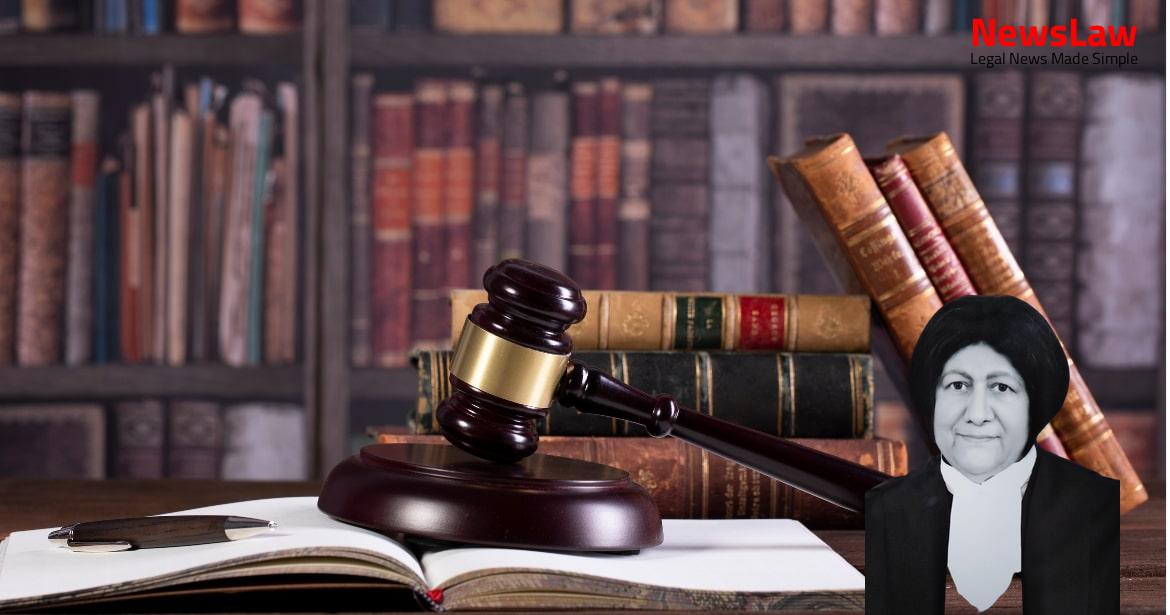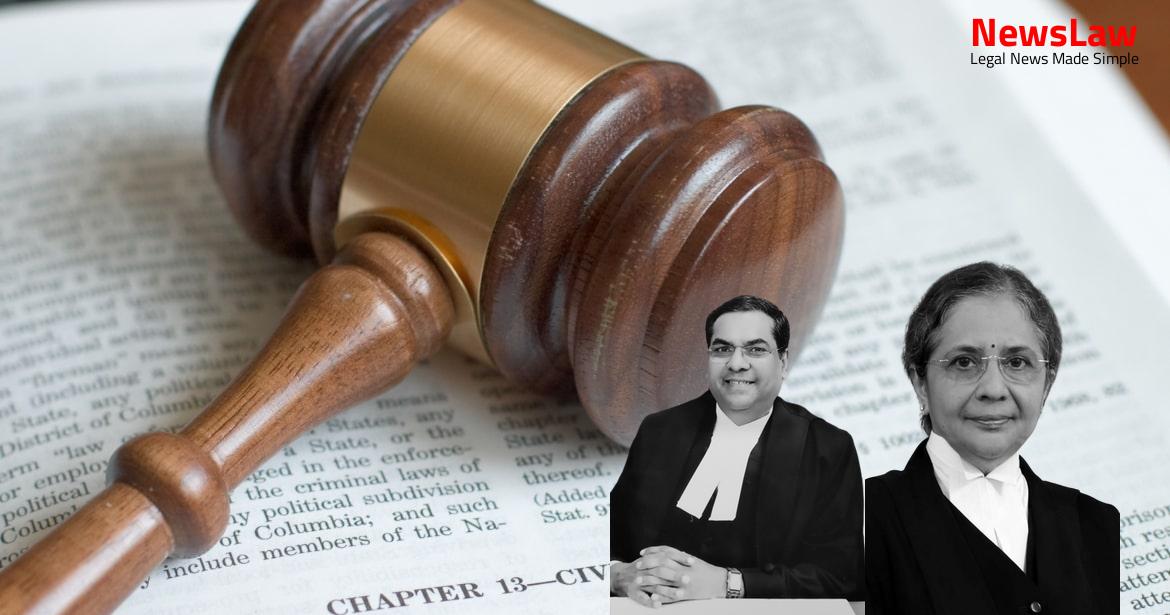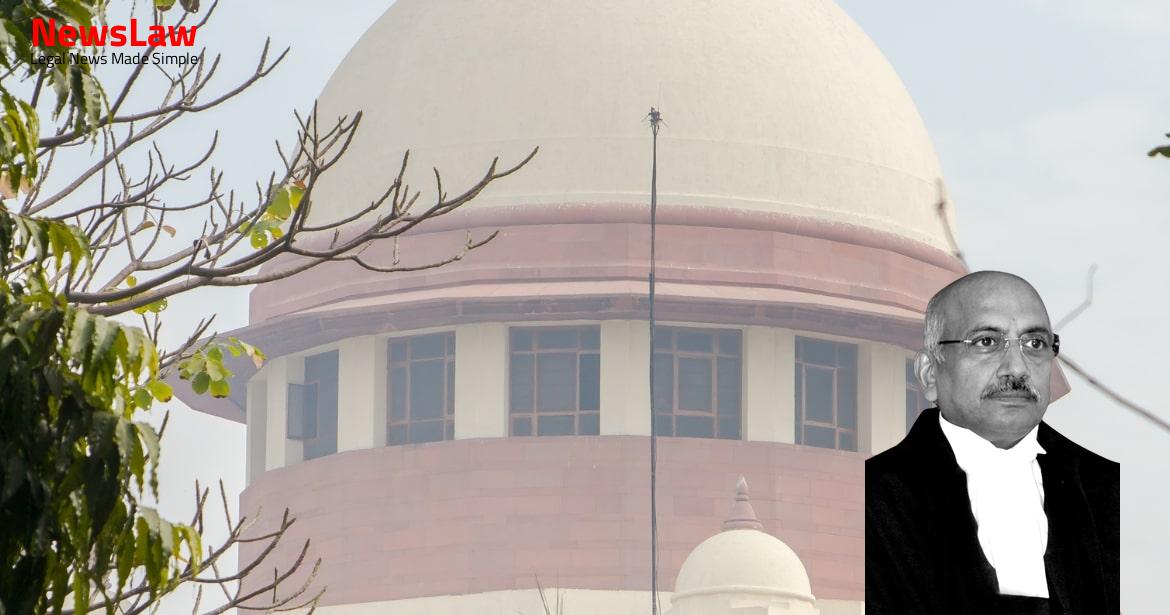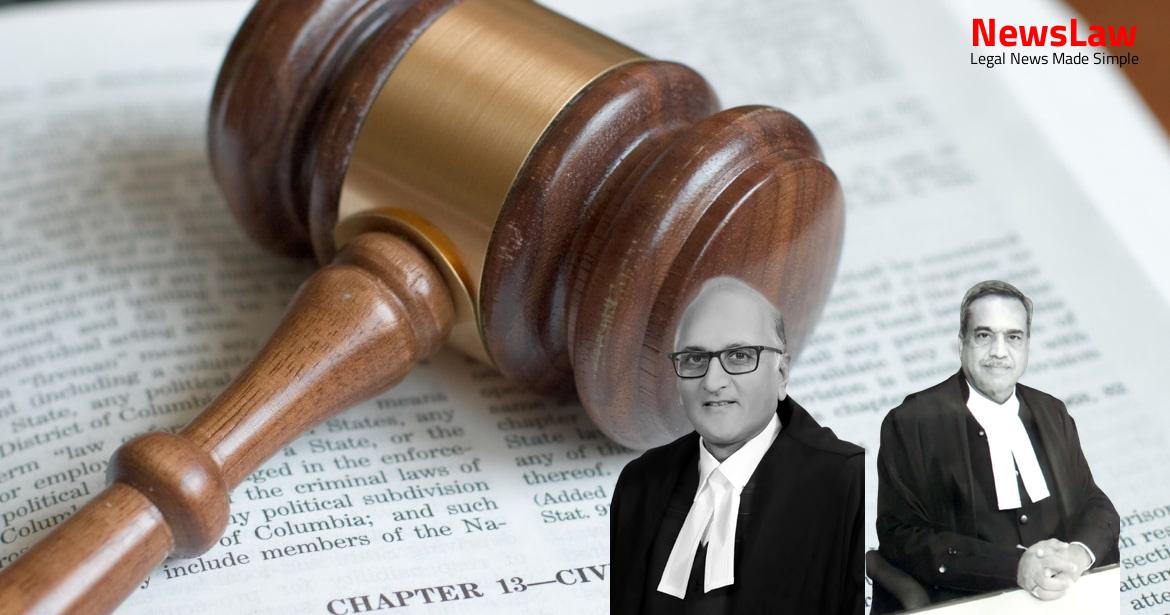A significant legal battle surrounding the eligibility criteria for the position of Assistant Teacher in Jiaruddintola High School has reached its conclusion in the Supreme Court of India. The respondent, who underwent intense scrutiny for qualification, emerged victorious as the court overturned the previous decision. Let’s delve into the details of this landmark judgment and its implications. #SupremeCourt #LegalCase #HighCourtDecision
Facts
- The original candidate produced all necessary documents during the personality test.
- The candidate was successful in the Written Test and invited for a Personality Test.
- The candidate was empanelled for the post of Assistant Teacher in Arabic based on the test results.
- The candidate was to be appointed as an Assistant Teacher in Arabic in Jiaruddintola High School, District-Malda.
- The Commission later cancelled the selection stating the candidate did not have Bengali as a subject at various education levels.
- The candidate filed a Writ Petition challenging the cancellation and was directed by the Single Judge to be appointed within a week.
- The candidate had completed a Certificate Course in Bengali from the University of Delhi.
- The Certificate Course had specific papers on Grammar and Translation, Composition and History of Literature, and Oral skills.
- The candidate’s marks obtained in the Certificate Course were 155 out of 300.
- The syllabus for the Certificate Course also included reading, writing, and conversation in Bengali.
- The advertisement and rules were cited as grounds for potential rejection of candidature if found ineligible.
- The Division Bench ruled in favor of the Respondent No.1 based on Rule 5(c) of the 2007 Rules.
- It was determined that the Certificate Course in Bengali from the University of Delhi qualified under Rule 5(c).
- The Respondent No.1 did not fall under Rule 5(a) or Rule 5(b) as per the findings.
- Both the Division Bench and Single Bench concluded that the Respondent No.1 met the requirements of Paragraph 2 of the Advertisement and Rule 5(c) of the Rules.
- The Single Judge’s decision to recommend the Respondent for the Assistant Teacher position was based on the successful completion of the Certificate Course in Bengali.
- The Statement of Marks from the University of Delhi confirmed the completion of the course with 155 out of 300 marks.
- The requirement of ‘succeeding at any subsequent higher level of education in the language paper’ was considered fulfilled by the completion of the Certificate Course.
Analysis
- The High Court has the power to issue writs to correct quasi-judicial or administrative decisions for enforcement of fundamental rights.
- If a decision is irrational and not supported by evidence, it can be considered perverse and struck down.
- Certificate courses may not be higher than secondary education and can be basic courses for beginners.
- The Division Bench misinterpreted the eligibility criteria for the post of Assistant Teacher of Arabic.
- Statutory rules for teacher appointments should specify minimum qualifications, not individual certificates.
- The interpretation of ‘higher level of education in that language paper’ as graduation or post-graduation level is valid.
- The Court can review decisions for apparent errors of law, but not for sufficiency of grounds or merits of the decision.
- The Court should address breach of legal rights or duty, not aim for perfection in decision-making.
- The High Court overstepped its judicial review power by sitting in appeal over the decision of the authorities.
- The High Court’s jurisdiction under Article 226 of the Constitution of India does not involve sitting in appeal over an administrative decision.
- The extraordinary jurisdiction under Article 226 is primarily to enforce fundamental or legal rights and duties.
- If an error needs to be established through reasoning and different opinions can be reasonably held on the matter, it cannot be considered an error on the face of the record.
Also Read: CRPF Act: Validity of Rule 27 for Compulsory Retirement – Case of Head Constable vs. CRPF
Decision
- Judgment and order under appeal is not sustainable
- Judgment and order under appeal is set aside
- Appeal is allowed
- No order as to costs
Also Read: DAMEPL vs. DMRC: Curative Petition and Arbitral Award Restoration
Case Title: WEST BENGAL CENTRAL SCHOOL SERVICE COMMISSION Vs. ABDUL HALIM .
Case Number: C.A. No.-005824-005824 / 2019



